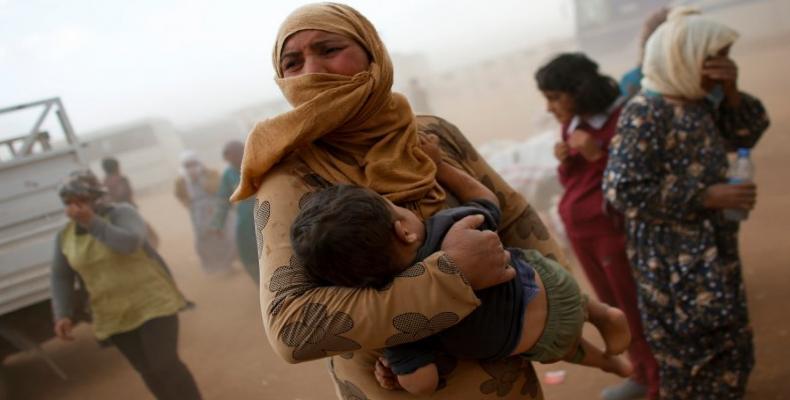London, February 20 (RHC)-- The government of UK Prime Minister Theresa May is scrapping a scheme to resettle child refugees, withdrawing a pledge to let in thousands of the vulnerable children. British Immigration Secretary Robert Goodwill said that London was ending the so-called “Dubs” program this March, adding that the country was feeling “proud” after resettling 350 children.
Introduced by Labour peer Lord Alfred Dubs in May last year, the program was an amendment to the country’s Immigration Bill that required then Prime Minister David Cameron to reportedly accept 3,000 children from North Africa and Middle East.
Surviving deadly conflicts and braving what London called back then a “lethal” journey, the unaccompanied children were registered in Greece, Italy or France. In reality, however, only about 200 children have entered the UK after the plan took effect in October. Another 150 are expected to enter the country before the program ends.
“[The] UK has a proud history of providing protection for those in need, including some of the most vulnerable children affected by the migration crisis,” Goodwill said. “The government’s strategy is to support international efforts to find a comprehensive and sustainable solution to the refugee crisis; we must deal with its root causes, as well as respond to the consequences."
The decision to end the program draw fire from Dubs, who himself came to Britain on the Kindertransport program for Jewish children. He called the act “shameful” and asked May in a letter to not “shut the door” on the vulnerable children.
“During the Kindertransport, Sir Nicky Winton rescued 669 children from Nazi persecution virtually singlehandedly,” said Dubs. “I was one of those lucky ones. It would be a terrible betrayal of his legacy if as a country we were unable to do more than this to help a new generation of refugees.”
Originally, the campaign for the Dubs amendment called on the British government to help 3,000 of the estimated 90,000 lone child refugees who had arrived in Europe in 2015, amid the largest refugee crises since Second World War.
Across the world, many observers blame the interventionist policies of Western powers on a surge in terrorism and war in North Africa and the Middle East that have forced people to flee their homes.
UK Scraps Resettlement Program for Child Refugees

Matérias relacionadas
Comentários
Deixe um comentário
Todos os campos são requeridosMais vistas
- Díaz-Canel preside cerimônia que marca 64º aniversário da vitória em Girón
- Cuba ajuda países a suprir a falta de recursos humanos na área de saúde
- Cuba Saúde 2025, um evento em Havana para o bem-estar universal
- Cuba relembra a vitória sobre os mercenários em Playa Giron
- Feira Internacional de Saúde consolida o papel de Cuba na biotecnologia

